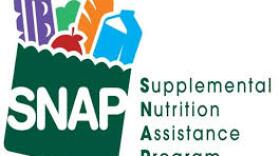The partial federal government shutdown has food bank operators nervous that they could lose food distributions from the U.S. Department of Agriculture. Meanwhile, the families they serve could also lose food benefits.
Federal programs such as SNAP (known as SNS in North Carolina) and USDA food distributions to food banks are funded for now -- but if the shutdown lasts long enough, those benefits may run dry.
The Food Bank of Central and Eastern North Carolina’s Vice President of Community Health and Engagement Gideon Adams worries how the bank will keep well stocked if it stops getting deliveries of fresh and canned food from the USDA.
“I've got to be brutally honest, I'm not sure if we could make up [those losses],” Adams said. “The simple fact of the matter is, that the food bank does not provide enough food as is needed currently.”
Food banks across North Carolina and the country receive a portion of their supplies through USDA commodity distribution programs like The Emergency Food Assistance Program.
“If funding runs out for those, it would be a huge hit for us in terms of our ability to provide food to the clients,” Adams said. “Likewise, if the funding runs out for SNAP, our clients are going to need our services more than ever.”
SNAP benefits for individuals and families, formerly known as food stamps, are expected to continue through the end of January. Meanwhile, food bank operators like Adams have no idea how much longer USDA commodity deliveries will continue under the shutdown.
That uncertainty, combined with a potential for rise in demand because federal employees are going unpaid, has food bank operators anxious about a prolonged government shutdown.










